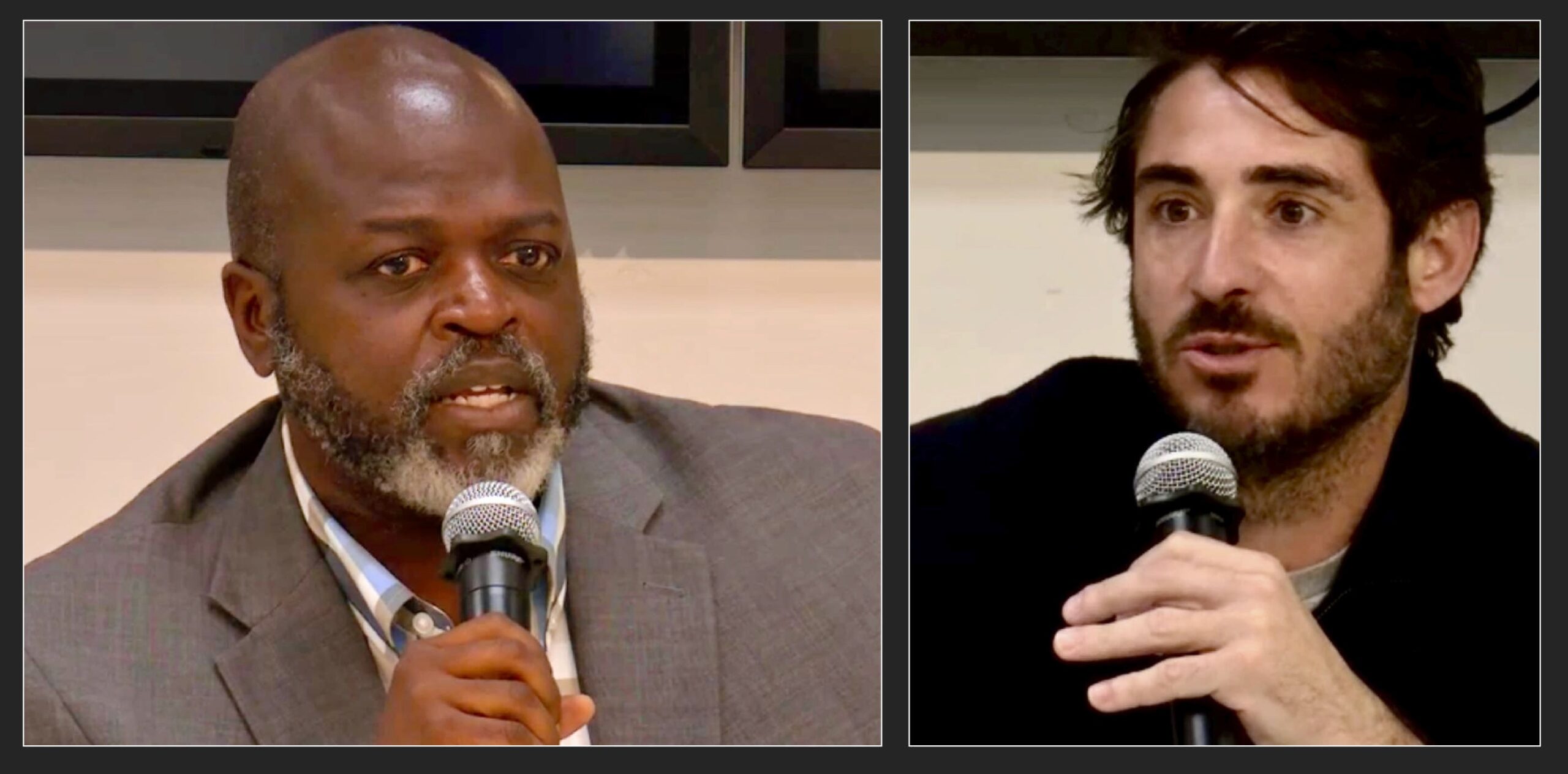
May 14, 2024
Transparency. Feedback. Fewer promises and more action on previous promises not kept. Serve all people, not just some.
Greg Johnson is not new to the city. His company, Orbital Socket, has a city contract to talk to residents and listen to their concerns about “mobility.” The project aims to advise City of Charlotte leadership about what a pitch in 2025 supporting a yes vote on a tax-increase might address, and what issues the plan for the money ought to solve. Johnson said his firm is talking with companies, nonprofits, community groups and individuals.
The definition of “mobility” can shift to the point of confusion, of course. In traditional sales pitches for bond issues or tax increases, the big-ticket road and transit projects get the attention. At this morning’s Forum, there was more focus on people-related issues like safety, ease of access, and perceptions of fairness, transparency and accountability.
Johnson presented along with César Hernández, Orbital Socket’s Director of Strategic Planning and Research.
Johnson’s handouts, available as a PDF download here, include company information; a two-page description of NXT CLT, an Orbital Socket project that Johnson described as a “business accelerator for businesses owned by people of color;” and a biography of Johnson, which does not mention his graduation in 1996 from Columbia (SC) Biblical Seminary and his family’s decision in 1997 to come to Charlotte to plant Grace Fellowship Church, which since 2009 has worshiped in Indian Trail.
Johnson asked for feedback, and he got lots of what he called “heartfelt” suggestions. Among them:
– The city failed to incentivize the parking and affordable housing along the light rail routes that would have boosted ridership and made it easier for transit users to end their car-dependence.
– Safety for people using bus and rail connections must be addressed. Johnson agreed, and said safety must be tackled first, if additional investments in infrastructure are to be worthwhile.
– Pedestrian safety needs work. Hernandez agreed, citing the number of places where sidewalks suddenly end, leaving pedestrians vulnerable when navigating highways or intersections.
– There should be a youth transportation component that would make possible young people’s afterschool attendance at educational and recreational activities.
– Residents unable to walk a mile from their home to a bus stop on a major corridor need neighborhood routes or systems like Washington DC’s “Circulator” service.
Asked why he thought city officials would pay attention this time to ideas like these that have been floated for years, Johnson said he thought they might have taken on “heightened emphasis because of the growth of the city.”
Hernandez suggested a need for a longer-term “information hub” that would give residents regular information on what has been suggested on mobility this year, how the mobility plan is revised over the next year to address residents’ suggestions, and then to publicize the work under way and completed.
Asked if this listening effort is a prelude to doing the marketing for any 2025 tax increase referendum, Johnson said slyly, “We are going to say yes.”